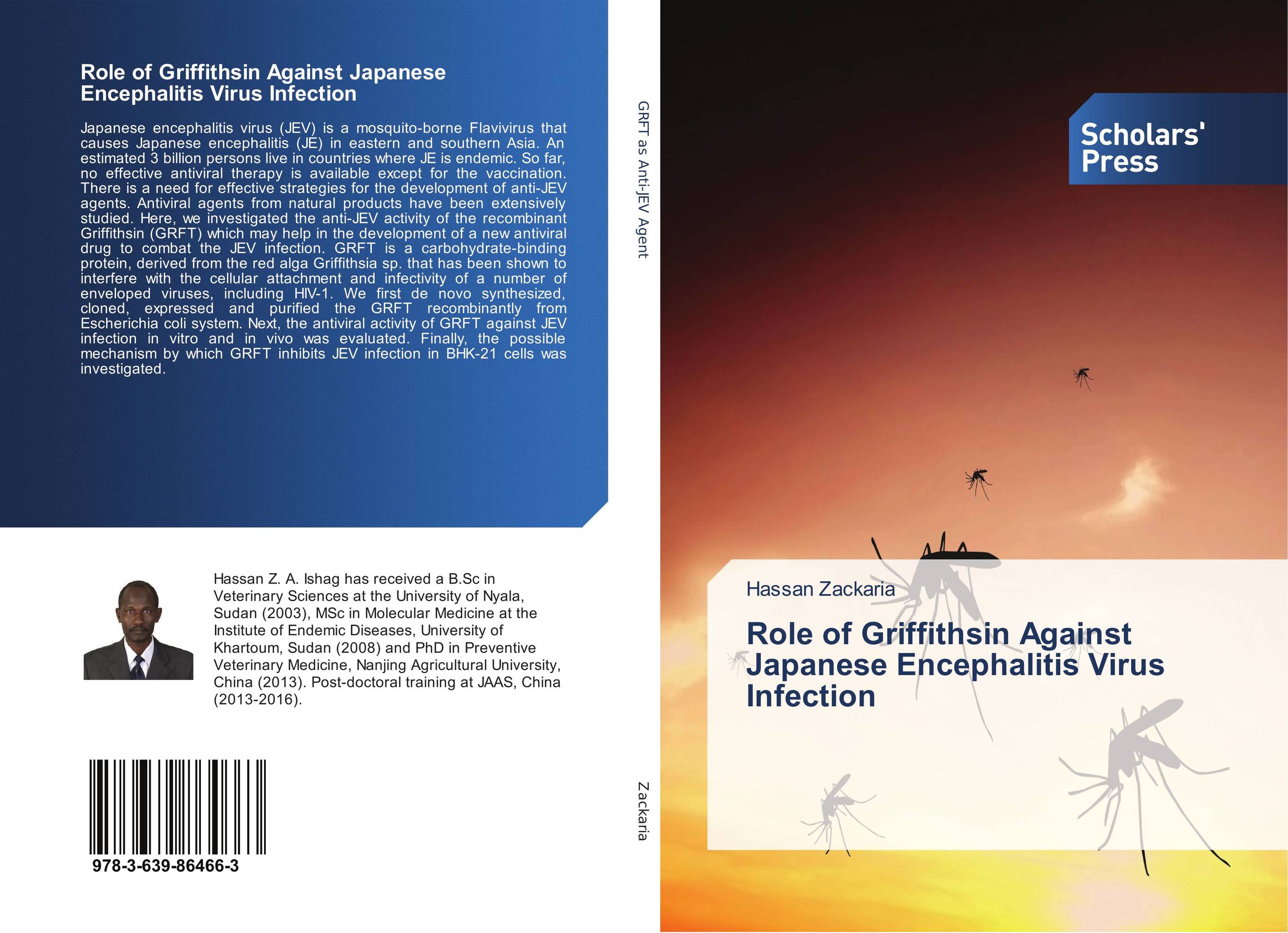| Поиск по каталогу |
|
(строгое соответствие)
|
- Профессиональная
- Научно-популярная
- Художественная
- Публицистика
- Детская
- Искусство
- Хобби, семья, дом
- Спорт
- Путеводители
- Блокноты, тетради, открытки
Role of Griffithsin Against Japanese Encephalitis Virus Infection.

В наличии
| Местонахождение: Алматы | Состояние экземпляра: новый |

Бумажная
версия
версия
Автор: Hassan Zackaria
ISBN: 9783639864663
Год издания: 2016
Формат книги: 60×90/16 (145×215 мм)
Количество страниц: 128
Издательство: Scholars' Press
Цена: 35304 тг
Положить в корзину
Позиции в рубрикаторе
Отрасли знаний:Код товара: 156520
| Способы доставки в город Алматы * комплектация (срок до отгрузки) не более 2 рабочих дней |
| Самовывоз из города Алматы (пункты самовывоза партнёра CDEK) |
| Курьерская доставка CDEK из города Москва |
| Доставка Почтой России из города Москва |
Аннотация: Japanese encephalitis virus (JEV) is a mosquito-borne Flavivirus that causes Japanese encephalitis (JE) in eastern and southern Asia. An estimated 3 billion persons live in countries where JE is endemic. So far, no effective antiviral therapy is available except for the vaccination. There is a need for effective strategies for the development of anti-JEV agents. Antiviral agents from natural products have been extensively studied. Here, we investigated the anti-JEV activity of the recombinant Griffithsin (GRFT) which may help in the development of a new antiviral drug to combat the JEV infection. GRFT is a carbohydrate-binding protein, derived from the red alga Griffithsia sp. that has been shown to interfere with the cellular attachment and infectivity of a number of enveloped viruses, including HIV-1. We first de novo synthesized, cloned, expressed and purified the GRFT recombinantly from Escherichia coli system. Next, the antiviral activity of GRFT against JEV infection in vitro and in vivo was evaluated. Finally, the possible mechanism by which GRFT inhibits JEV infection in BHK-21 cells was investigated.
Ключевые слова: In Vitro, Japanese encephalitis virus, Griffithsin, Antiviral activity, Glycoproteins, In vivo



